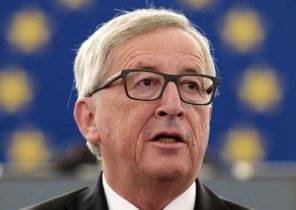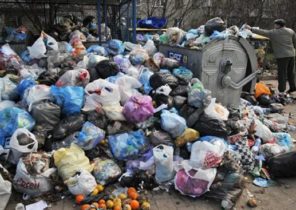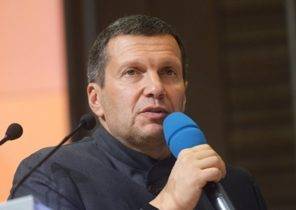Cambridge — Critics correctly point out that the American world order after 1945 have not been global and has not always been particularly liberal. Outside it remained more than half of the world (the Soviet bloc and China), while it included many of the authoritarian state. American hegemony has always been an exaggeration. However, the most powerful country in the world is obliged to lead the way in global public goods, or they never will, and it will suffer from the Americans.
Illustration here is the current pandemic. For the administration of Biden’s realistic goal should be the creation of a rules-based international institutions, whose membership will vary depending on the challenges they face.
Would China and Russia to take part in it? In 1990-e and 2000-ies, none of these countries had to balance American power, and the US violated the sovereignty for the sake of liberal values. America bombed Serbia and invaded Iraq without the approval of the UN security Council. And it was supported in 2005 a resolution of the UN General Assembly, which imposed a “Duty to protect” citizens subjected to violence by their own government. This doctrine America then used in 2011 to justify the bombing of Libya, intended to protect the citizens of Benghazi.
Critics consider all these facts are a Testament to American hubris after the cold war (for example, Russia and China felt betrayed when NATO intervention in Libya led to regime change), and advocates present them as a natural evolution of international humanitarian law. Anyway, the rising powers of China and Russia have established more stringent limits for liberal interventionism.
What remains? Russia and China put emphasis on the contained in the UN Charter norm of sovereignty, under which States could enter the war only for self-defense or with security Council approval. After 1945, the cases of seizures of neighbouring countries was rare, and when it did happen, they were followed by severe sanctions (as, for example, after the Russian annexation of Crimea in 2014). In addition, the security Council often authorizes the use of peacekeeping forces in the troubled countries, while political cooperation limits the spread of weapons of mass destruction and ballistic missiles. These aspects of the world order based on rules, remains critical.
As for economic relations, the rules here will require revision. Long before the start of the pandemic hybrid of Chinese state capitalism became the basis of unfair mercantilist model, ischezaushei the normal functioning of the world trade organization. The result will be the collapse of global production chains, especially those which depend on national security.
China complains that America does not allow companies such as Huawei, to build telecommunication networks 5G in the West, but such a position is consistent with the norms of sovereignty. The China does not allow Google, Facebook and Twitter to work in the country because of security reasons. Negotiations on new trade rules would help to prevent the escalation of the rupture of economic ties. Meanwhile, cooperation in the most important financial sector remains strong despite the current crisis.
On the contrary, ecological interdependence creates insurmountable obstacles for the realization of the sovereignty, because the associated threats are transnational. Regardless of the degree of regression in economic globalization, environmental globalization will continue, because it obeys the laws of biology and physics, not the logic of modern geopolitics. Such problems pose a threat to everyone, but no country can handle them alone. In cases such as pandemic covid-19 or climate change, the power starts the game with a positive sum.
In this context, it is not enough to think about power over others. We have to think about power with others. The Paris climate agreement and the world health organization help us in the same way as other countries. Since meeting Richard Nixon with Mao Zedong in 1972, China and the United States cooperated, despite ideological differences. Before Biden going up a difficult question: can the US and China to cooperate in creating global public goods, but also to compete in the traditional areas of great power rivalry.
Cyberspace is an important new topic, partly transnational, but also subject to sovereign state control. The Internet is already partially fragmented. The rules relating to the freedom of expression and privacy on the Internet, can be developed by a group of democratic countries, but they remain authoritarian States.
According to the Global Commission on issues of stability of cyberspace, some of the rules prohibiting interference in the basic structure of the Internet, serve the interests of authoritarian States if they want to maintain the connectivity to the network. However, in cases when they use a proxy structure for information warfare or interference in elections (and it is a violation of sovereignty), the current rules need to be strengthened by rules similar to those on which the United States and the Soviet Union agreed during the cold war (despite their ideological hostility) to limit the escalation of incidents at sea. United States and States that are their associates, will have to announce the rules which they intend to adhere to the necessary measures of containment.
Defending liberal values in cyberspace would not mean unilateral disarmament of the United States. America needs to distinguish between permitted soft power of open persuasion and hard power of secret information war — in the latter case, she would retaliate. Open broadcasting and programmes of Russia and China will be allowed, but not secret, coordinated actions, such as manipulation of social networks. And the U.S. will continue to criticize the situation with human rights in these countries.
As polls show, the American public wishes to avoid military interventions, but does not want to leave their alliances or abandon multilateral cooperation. And society are still important values and principles.
If Biden is elected President, then confronted the question is not about the need to restore liberal international order. The question is: can the US work with key allies to promote democracy and human rights and to cooperate with a wider range of States to control through a system of rules for international institutions, which are necessary to counter transnational threats such as climate change, pandemics, cyber attacks, terrorism, economic instability.







